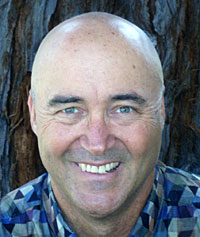 Clinical psychologists acknowledge the existence of varying personality types; likewise, physical therapists and sports trainers who study the body find variations of body types. Homeopaths assert that body and mind are inseparable, and they posit the necessity of looking at "bodymind" types. A homeopathic medicine is generally given not simply for a symptom or a disease but for an entire pattern or constellation of physical and psychological symptoms.
Clinical psychologists acknowledge the existence of varying personality types; likewise, physical therapists and sports trainers who study the body find variations of body types. Homeopaths assert that body and mind are inseparable, and they posit the necessity of looking at "bodymind" types. A homeopathic medicine is generally given not simply for a symptom or a disease but for an entire pattern or constellation of physical and psychological symptoms.
Homeopaths acknowledge certain groupings of bodymind symptom patterns which a person has and which correspond with the sensitivity of a particular homeopathic medicine. The word "symptom" here is most broadly defined as any sensation that is discomforting or that limits a person's physical or psychological functions. Homeopath also inquire into what factors, which homeopaths call "modalities," seem to aggravate or ameloriate these sensations. In addition to prescribing on these factors, a homeopath may utilize information about the person's body type, temperament and disposition, and behavioral tendencies to determine the appropriate medicine.
Dr. Francisco Eizayaga, an Argentinian urologist and internationally respected homeopath, has helped differentiate the various symptoms and characteristics of a person to find the correct medicine. Dr. Eizayaga has asserted that a "constitutional medicine" is prescribed primarily according to a person's genetic endowment and some of the person's deeply-seated psychological tendencies. A "fundamental medicine" is prescribed according to the functional symptoms which represent the organism's response to the various stresses it is experiencing.* Dr. Eizayaga notes that fundamental states may change and pile up on each other like concentric skins of an onion. Dr. Eizayaga also differentiates the treatment of organic pathology from constitutional or fundamental states, though such a discussion is beyond the scope of an introductory book.
[* Many homeopaths do not make a distinction between the constitutional or fundamental medicine. They generally refer to the "constitutional medicine" as the one that fits a long-standing set of symptoms a person experiences and "acute medicine" as that which fits transitory disease states. For ease of discussion in forthcoming chapters, reference only to "constitutional medicine" will be made when discussing the treatment of the chronically ill based on their totality of symptoms.]
Homeopaths identify certain patterns of symptoms with themedicines which have cured them. There is, for instance, the "Phosphorous type," the "Sulphur type," the "Arsenicum (arsenic) type," and the "Natrum mur (salt) type." Each of these typologies refers not only to a type of headache, for instance, but also to: those factors that make that headache pain better or worse, other physical symptoms which may be related to it, various past or present symptoms and diseases, food cravings or aversions, sensitivity to temperature and weather, energy levels at varying times of the day, sweating tendencies, stool and urination characteristics, menstrual patterns, emotional and mental states, and behavioral propensities.
After a homeopath completes a thorough interview, he/she seeks to find a medicine which matches the "essence" of the person's totality of symptoms. The word "essence" is of value here since homeopathy is the science of finding the most "similar" medicine to the person. It is not necessary to match every symptom the person has with those symptoms that the substance causes. Rather, it is enough to find a substance which matches the essence of the person's characteristics.